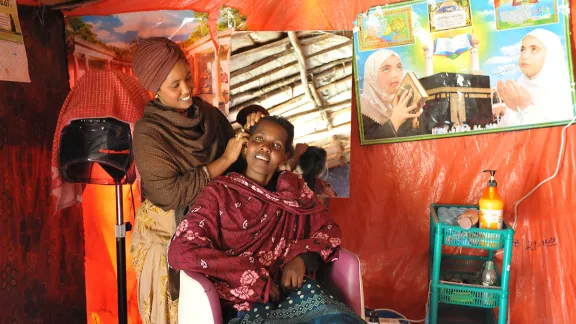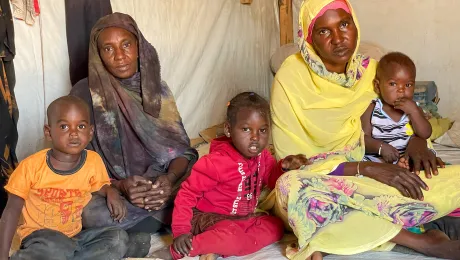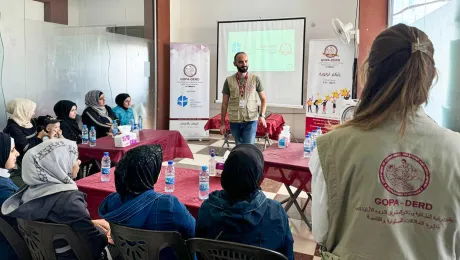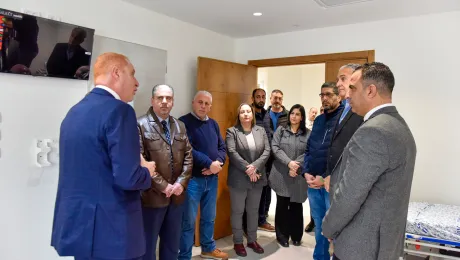
Suhai Ismael Abuker with a customer in her hairdressing salon. Photos: LWF/C. Kästner
LWF livelihoods projects support long-term refugees in Ethiopia
“When I have learned all this, I will start a tailoring business to provide for my family,” says Faiza Mahmud Said. The elderly woman in the yellow headscarf cuts white paper into different shapes. It’s one of the first days of the tailoring course for the Somali refugees in Awbarre refugee camp, Jijiga, Eastern Ethiopia. The skills taught in the workshop are meant to provide the participants with an independent income source.
Awbarre seems like a forgotten place: Two refugee camps, Awbarre and Shedder, situated on each side of a host community and a seasonal river. The arid region is close to the Somalia border, the only paved road a chain of check points. Apart from that, little black sheep with white heads, a Somali breed, seem to be the main inhabitants of the area.
Protracted situation
Faiza Mahmud Said, like the majority of the 22,000 Somali refugees in the two camps, has been here for almost ten years. There is little international attention for the protracted refugee situation of Somalis in Ethiopia, and even less funding. Said belongs to a family of 21 people. Food is distributed once a month.


